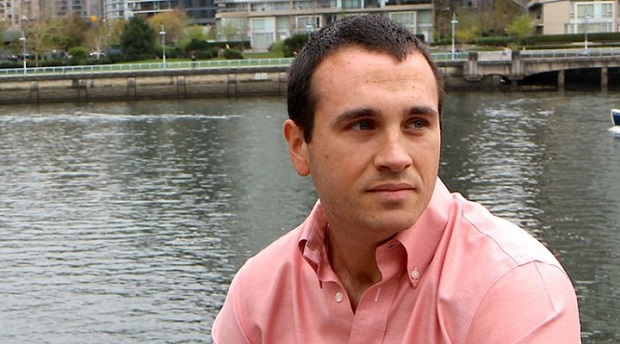* – This article has been archived and is no longer updated by our editorial team –
Alexis Assadi is an entrepreneur, writer and financier who is based in Vancouver, Canada. He is a director and the Chief Executive Officer of Pacific Income Capital Corporation, which acts as the general partner of Pacific Income Limited Partnership. While Alexis Assadi founded those businesses in 2017, he has been in the lending space for several years prior to then. To date, he has helped finance over 50 entrepreneurs and real estate ventures.

Q: You’ve established yourself as a non-bank lender to entrepreneurs. Why do business owners look to people like you for financing, rather than going to more traditional sources?
A: The common misconception is that you have to use nontraditional lenders when you’re desperate or an extreme-risk candidate. But that’s not necessarily the case. It’s certainly not the space in which I do business.
The credit market is enormous. On one end of the spectrum, you’ve got banks that give plain-vanilla residential mortgage loans to borrowers with good credit and a sizeable down payment. On the other, you’ve got payday lenders and pawnbrokers who obviously cater to distressed borrowers. But there’s a huge gap in between that often doesn’t get the same media attention.
I focus on a tiny sliver of the loan business. I lend to entrepreneurs and real estate operators who are growing and may need some “outside the box” financing.
For instance, their affairs could be too complicated for a bank to consider. They might own a property jointly with various partners. They might need the cash quickly to capitalize on an opportunity. There are a hundred reasons for why an entrepreneur might choose us over a bank. I know a few people who own over a dozen properties who have trouble securing bank financing. Why? Because they have too much debt, obviously because they have all those mortgages. Even though they are millionaires and they are successful real estate investors, banks can still be hesitant. In many cases, our loan product aligns better with the goals of entrepreneurs.
That’s not to say that I don’t fund deals that are too risky for banks to consider – I do. But as I said earlier, there is a middle ground. The fact that a bank won’t finance a loan doesn’t automatically translate into extreme hazard.
Q: Do you participate in mortgage syndicates?
A: I have done so in the past. In fact, I’m involved in one right now in my personal capacity. Pacific Income Limited Partnership hasn’t, though. Mortgage syndicates can have their advantages. But you can also give up a degree of control, which increases the risk involved.
Q: What’s the most important thing you’ve learned as an investor?
A: The most consequential decision I made was to focus on income producing assets. Investments that pay income, like REITs, dividend stocks and mortgages, are the cornerstone of my portfolio. I always get paid, regardless of market fluctuations. I learned about this concept in my early 20s and haven’t strayed from it since.
Q: Is there a public figure from whom you draw inspiration?
A: There are a few, I’m sure. However, I’d probably have to say that Arnold Schwarzenegger is one of the most impressive to me. He’s the epitome of what can be accomplished through unbridled determination. He went from a soldier in Austria, to the most well-known bodybuilder in history, to a successful real estate investor and businessman, to a movie star, to a governor of California and to a staple of pop culture. Talk about a breadth of experience!
I’m not commenting on his politics or personal life. All I’m saying is that the man accomplished a lot by being shrewd and dedicated.
 Recommended: An Interview With Dominic Mansour, CEO Of Bragg Gaming Group
Recommended: An Interview With Dominic Mansour, CEO Of Bragg Gaming Group
Q: When people hear the name, “Alexis Assadi,” what do you want them to think?
A: Ultimately, that I’m thoughtful, decent and that I contribute something positive to society. I don’t like being defined as a businessperson because that’s not who I am. It’s part of what I do, but it doesn’t characterize me. For example, Pacific Income LP is a company that I spend a lot of time on. But I also love to read, write about and discuss subjects like politics, the law and human rights, etc. I don’t want to be seen as just an investor or a lender.
Q: If you weren’t in business, what would you be doing?
A: I think I would have been a good prosecutor. I thought of going to law school back in university, but that was because my degree was in political science. It was kind of a logical step forward. However, I wasn’t interested in the law at all. I could hardly tell you what an attorney did back then, beyond what I saw on TV.
Today, though, I work with a lot of them and find their jobs to be pretty interesting. The firm I currently use is one of those huge, white-shoe companies with all the bells and whistles attached. But that’s not what appeals to me about law. Rather, it’s the intellectual discussion, hypothesizing and problem solving. I think it’s also an honorable profession, despite what some of the public might perceive.
The problem is that it took a long time for me to mature and figure myself out. I sometimes feel like I didn’t become “me” until age 28. I might have taken a different path if I had been “me” at 19 or 26.
Q: Do you have regrets?
A: Only about a million of them! I’ve been in situations as a young businessperson that were just way too far out of my depth. But failure is part of life.
Q: What’s the best part about your work?
A: It’s pretty gratifying when a company uses your capital for something positive, like creating jobs.
I gave a small loan to one of my friends about five years ago, when he was just beginning his business. He was recently divorced and bankrupted by the marriage, so he couldn’t get cash from anyone. But he was a smart businessman with an unbelievable work ethic. I’ve issued a couple of more tranches of financing since then, too. Today, his company has over 20 employees and spans across western Canada. I like to think that I had a small role in that success.
Q: When a company gets a loan from you, do you ever get involved in their business?
A: No and I don’t want to. They are the professionals at their business venture. I’m the professional at mine. We each stay in our respective lanes.
Q: What happens if a firm can’t pay you back?
A: None of the companies I’m part of, whether it’s Pacific Income Limited Partnership or otherwise, are in the business of litigation. I underscore that because some firms’ models revolve around inducing borrowers into complex loan contracts. They then wait for the agreement to be broken and take legal action immediately. It’s brutal. I try to avoid conflicts. I have never foreclosed on a property before.
However, occasionally a borrower will require an extension. Assuming it makes sense, I’ll generally grant it in exchange for additional fees or a higher interest rate. But my actions will ultimately be dictated by capital preservation. The goal is to not issue a loan that can’t be repaid according to our agreement.
Q: Tell us something people don’t know about you.
A: I only eat meat twice a year: on Christmas and on my birthday. Otherwise, I’m a pescatarian.
Activate Social Media:


